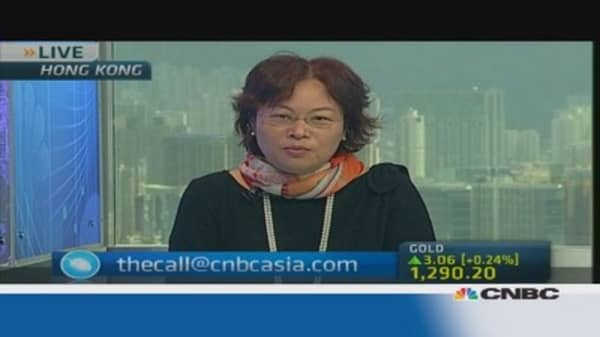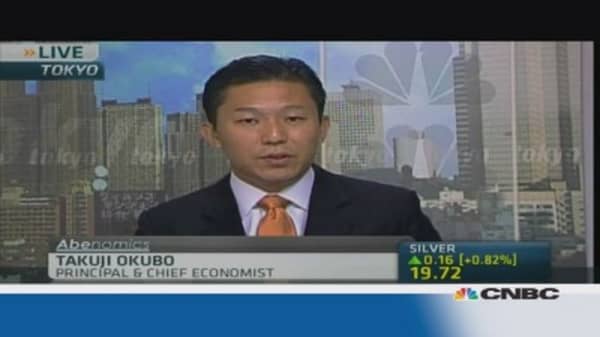The data is a welcome surprise from June's contraction and entrenched the positive mood created by the last month's official Purchasing Managers' Index (PMI) data. A raft of further data is expected on Friday, including inflation, industrial output, fixed-asset investment and retails sales data.
"Obviously the numbers are quite good but if you look at in context, I think the numbers only brings it back to where they were back in April. It suggests to me a return to a trend, I don't think it's much of a bounce just a return to normal conditions I would say," said Alistair Chan, economist at Moody's Analytics.
(Read more: China market bounce: trend change or false alarm?)
Brokerages weighed on the index with 1 percent declines in CITIC Securities, Haitong Securities and China Merchants Securities.
Nikkei down 1.6%
Japan's benchmark index closed at its lowest levels since July, extending the previous day's 4 percent tumble as dollar-yen traded near a seven-week low of 96.15.
(Read more: Is the best trade of2013 losing its luster?)
The index reversed gains in afternoon trade following it's earlier 1 percent spike after the Bank of Japan (BOJ)'s decision to leave monetary policy unchanged at the conclusion of its two-day meeting. Investors are hoping BOJ chief Haruhiko Kuroda will provide relief to markets by talking down the stronger yen when he speaks at a press conference later today.
"There are no downside risks emerging - inflation has developed with expectations while long-term interest rates have been very stable so the BOJ has been successful in restoring its credibility," said Masayuki Kichikawa, chief Japan economist at Merrill Lynch Japan Securities.
Market heavyweight Softbank and Fast Retailing lost over 2 percent each while exporter stocks gave up their gains. Robotics maker Fanuc fell 1 percent after rallying 2 percent earlier, Isuzu Motors skidded over 4 percent.
In earnings news, tractor maker Kubota added 1.6 percent after reporting a 92 percent rise in quarterly net profit but Sumitomo Rubber Industries lost nearly 7 percent after posting a 7.9 percent fall in first-half operating profit.




